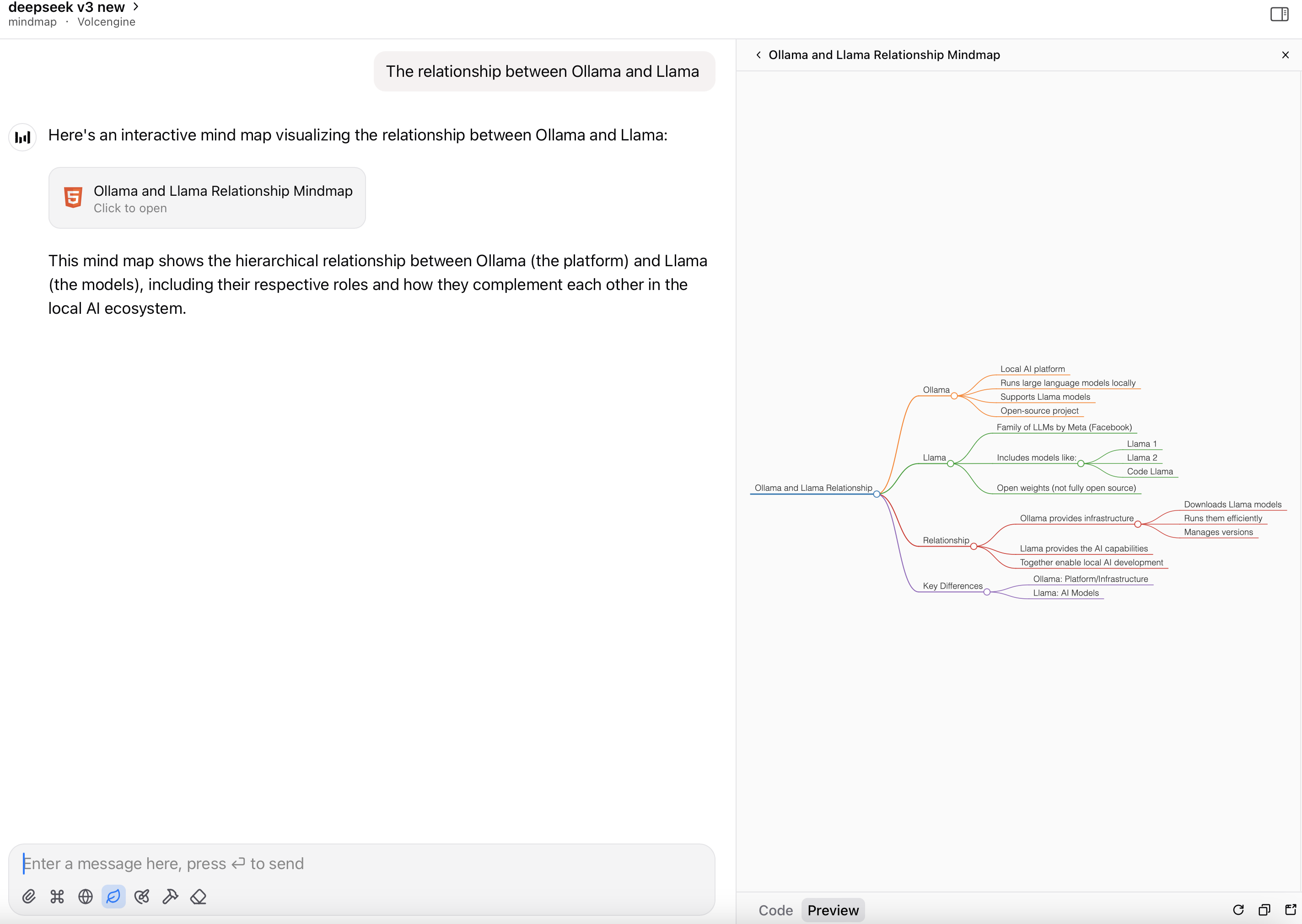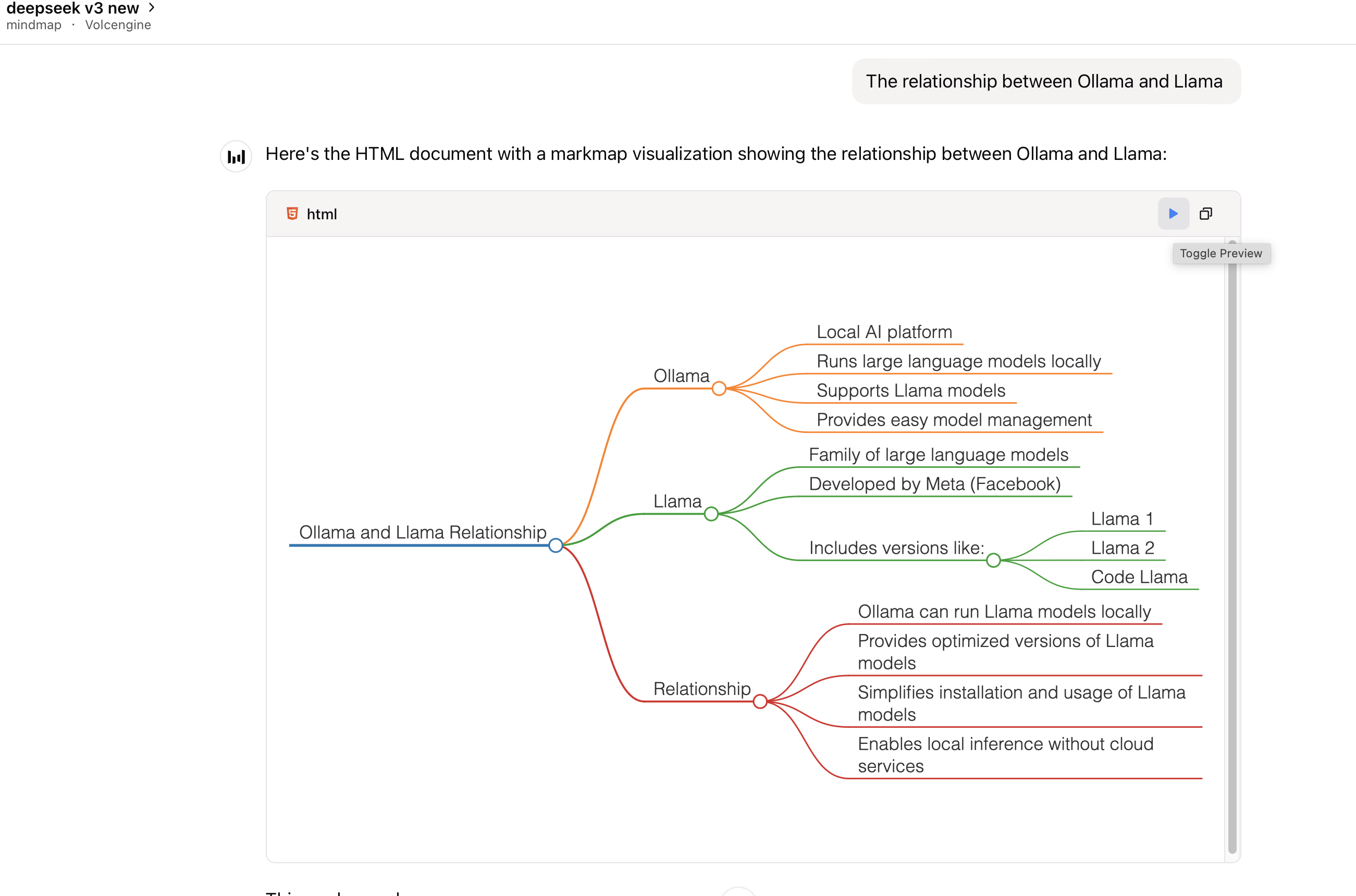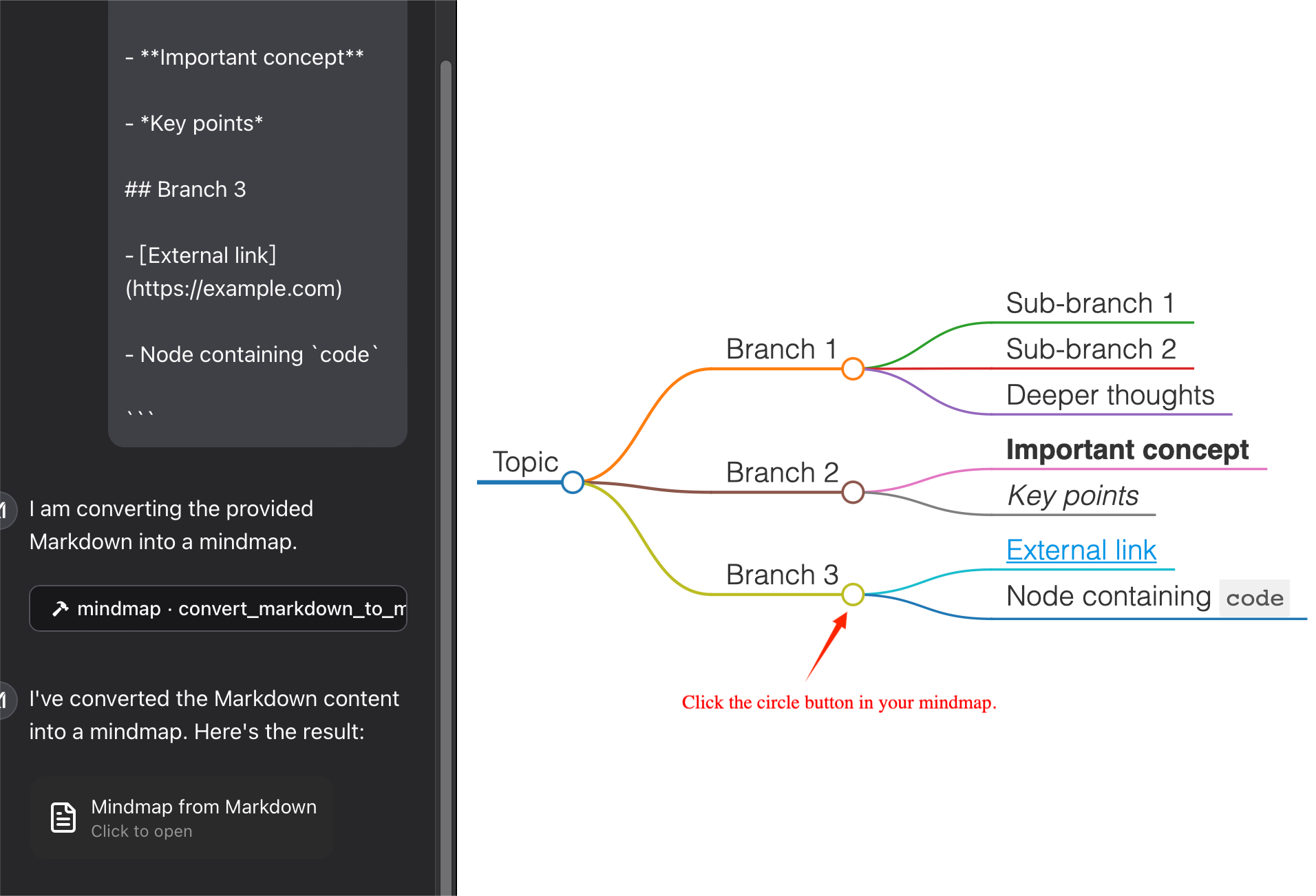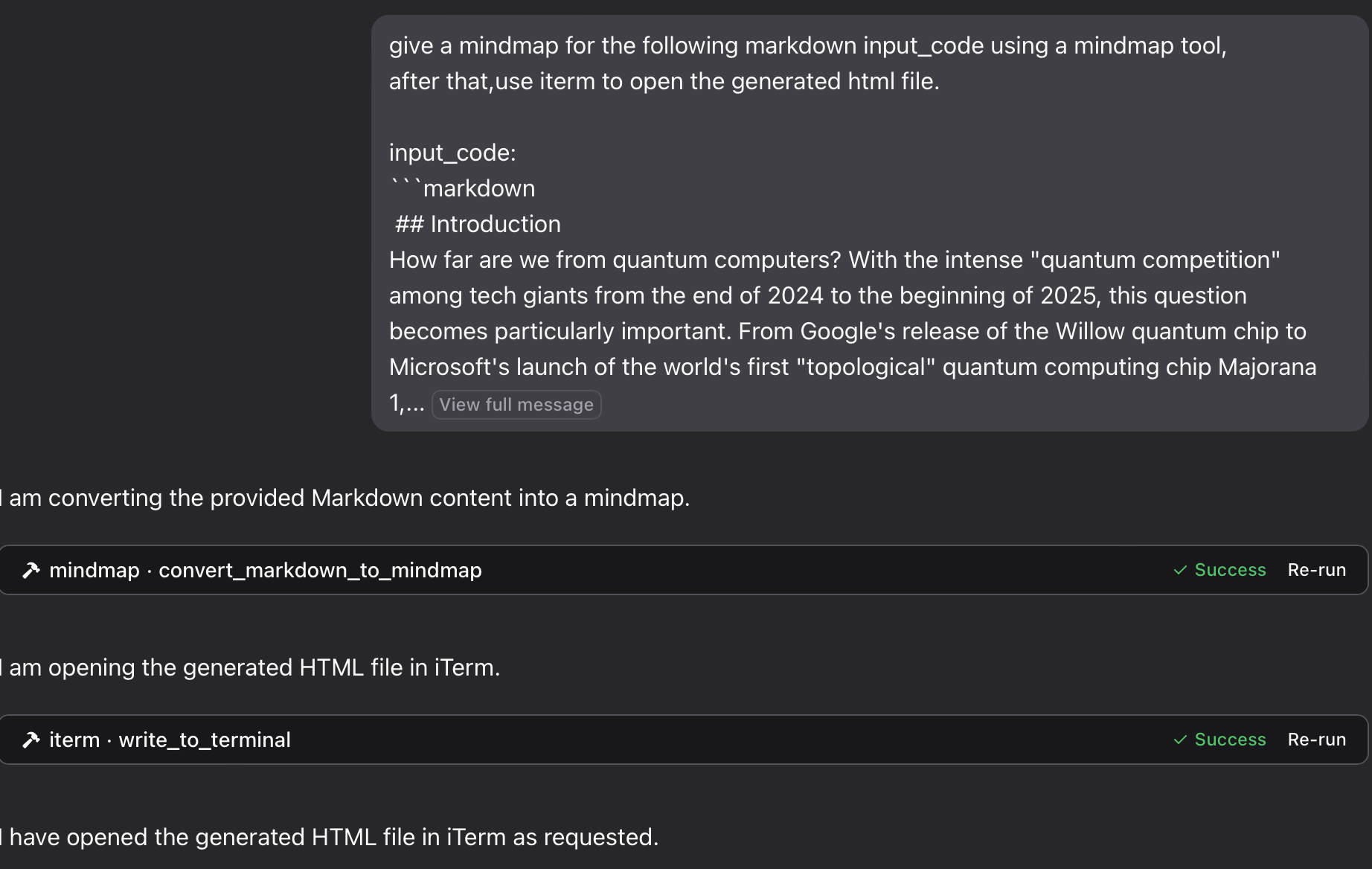# Directory Structure
```
├── .gitignore
├── LICENSE
├── mindmap_mcp_server
│ ├── __init__.py
│ └── server.py
├── pyproject.toml
├── README.md
└── tests
└── __init__.py
```
# Files
--------------------------------------------------------------------------------
/.gitignore:
--------------------------------------------------------------------------------
```
# Byte-compiled / optimized / DLL files
__pycache__/
*.py[cod]
*$py.class
# Distribution / packaging
dist/
build/
*.egg-info/
# Unit test / coverage reports
htmlcov/
.tox/
.nox/
.coverage
.coverage.*
.cache
nosetests.xml
coverage.xml
*.cover
.hypothesis/
# Virtual environments
venv/
env/
ENV/
# IDE files
.idea/
.vscode/
*.swp
*.swo
# OS specific files
.DS_Store
Thumbs.db
```
--------------------------------------------------------------------------------
/README.md:
--------------------------------------------------------------------------------
```markdown
# Mindmap MCP Server
<p align="center">
<img src="https://raw.githubusercontent.com/YuChenSSR/pics/master/imgs/2025-03-21/JMi7Mn89Hw5ikd9z.jpeg" alt="mindmap_mcp" width="50%">
</p>
A Model Context Protocol (MCP) server for converting Markdown content to interactive mindmaps.
## Installation
```bash
pip install mindmap-mcp-server
```
Or using `uvx`:
```bash
uvx mindmap-mcp-server
```
Or using `docker` safer and easier.
## Attention
Three installation methods have been successfully tested on macOS and Linux.
For Windows users experiencing issues with `npx` for this MCP, consider using the Docker method. Alternatively, if you use Visual Studio Code, the ["Markmap"](https://marketplace.visualstudio.com/items?itemName=gera2ld.markmap-vscode) extension offers a potentially simpler solution than navigating command-line tools.
---
If you're experiencing unresolved issues, you can use my recent system prompt as a Mindmap Assistant instead of using this MCP server.
<details>
<summary>Using my system prompt instead of using this MCP server</summary>
```
You are a specialized assistant that generates HTML code for interactive markdown-based mind maps (markmaps). When a user sends you content, respond with a complete HTML document that displays their content as a markmap visualization.
If artifact tool is turned on, you can use the artifact.
Follow these requirements:
1. Use the markmap-autoloader library (version 0.18 or latest stable version)
2. Format the HTML exactly according to the template below
3. Replace the demo content in the template with the user's content, preserving their hierarchical structure
4. Maintain the markmap configuration options (maxWidth: 300, colorFreezeLevel: 2)
5. If the user doesn't provide markdown formatting (# for headings), format their content appropriately with main topics using # and subtopics using ##
Template to follow:
<!DOCTYPE html>
<html lang="en">
<head>
<meta charset="UTF-8" />
<meta http-equiv="X-UA-Compatible" content="IE=edge" />
<meta name="viewport" content="width=device-width, initial-scale=1.0" />
<title>Markmap</title>
<style>
svg.markmap {
width: 100%;
height: 100vh;
}
</style>
<script src="https://cdn.jsdelivr.net/npm/[email protected]"></script>
</head>
<body>
<div class="markmap">
<script type="text/template">
---
markmap:
maxWidth: 300
colorFreezeLevel: 2
---
# markmap
## Links
- <https://markmap.js.org/>
- [GitHub](https://github.com/markmap/markmap)
## Related
- [coc-markmap](https://github.com/markmap/coc-markmap)
- [gatsby-remark-markmap](https://github.com/markmap/gatsby-remark-markmap)
## Features
- links
- **inline** ~~text~~ *styles*
- multiline
text
- `inline code`
- Katex - $x = {-b \pm \sqrt{b^2-4ac} \over 2a}$
- This is a very very very very very very very very very very very very very very very long line.
</script>
</div>
</body>
</html>
```
*Visualization options:* (If formulas or symbols don’t display correctly, download the HTML file and open it in a browser.)
1. View the mindmap in artifacts (if available):

2. Render the HTML file as a mindmap:

</details>
---
## Prerequisites
This package requires Node.js to be installed when using command `python` or `uvx` to run the server.
## Usage
### With Claude Desktop or other MCP clients
Add this server to your `claude_desktop_config.json`:
<details>
<summary>using `uvx`:</summary>
```json
{
"mcpServers": {
"mindmap": {
"command": "uvx",
"args": ["mindmap-mcp-server", "--return-type", "html"]
}
}
}
```
or
recommended:
```json
{
"mcpServers": {
"mindmap": {
"command": "uvx",
"args": ["mindmap-mcp-server", "--return-type", "filePath"]
}
}
}
```
we use `--return-type` to specify the return type of the mindmap content, you can choose `html` or `filePath` according to your needs.
`html` will return the entire HTML content of the mindmap, which you can preview in your AI client's artifact;


`filePath` will save the mindmap to a file and return the file path,which you can open in your browser. It can **save your tokens** !


</details>
<details>
<summary>using `python`:</summary>
Using [a specific Python file](https://github.com/YuChenSSR/mindmap-mcp-server/blob/main/mindmap_mcp_server/server.py) in this repository:
```json
{
"mcpServers": {
"mindmap": {
"command": "python",
"args": ["/path/to/your/mindmap_mcp_server/server.py", "--return-type", "html"]
}
}
}
```
or
```json
{
"mcpServers": {
"mindmap": {
"command": "python",
"args": ["/path/to/your/mindmap_mcp_server/server.py", "--return-type", "filePath"]
}
}
}
```
we use `--return-type` to specify the return type of the mindmap content, you can choose `html` or `filePath` according to your needs. see using \`uvx\` for more details.
</details>
<details>
<summary>using `docker`:</summary>
First, you pull the image:
```bash
docker pull ychen94/mindmap-converter-mcp
```
Second, set the server:
```json
{
"mcpServers": {
"mindmap-converter": {
"command": "docker",
"args": ["run", "--rm", "-i", "-v", "/path/to/output/folder:/output", "ychen94/mindmap-converter-mcp:latest"]
}
}
}
```
⚠️ Replace `/path/to/output/folder` with an actual path on your system where you want to save mind maps, such as `/Users/username/Downloads` on macOS or `C:\\Users\\username\\Downloads` on Windows.
**Tools Provided in the docker container**
The server provides the following MCP tools:
1. **markdown-to-mindmap-content**
Converts Markdown to an HTML mind map and returns the entire HTML content.
You don't use the args: `-v` and `/path/to/output/folder:/output` in the command `docker`.
**Parameters**:
• markdown (string, required): The Markdown content to convert
• toolbar (boolean, optional): Whether to show the toolbar (default: true)
**Best for**: Simple mind maps where the HTML content size isn't a concern. And you can use **artifact** in your AI client to preview the mindmap.
2. **markdown-to-mindmap-file**
Converts Markdown to an HTML mind map and saves it to a file in the mounted directory.
**Parameters**:
• markdown (string, required): The Markdown content to convert
• filename (string, optional): Custom filename (default: auto-generated timestamp name)
• toolbar (boolean, optional): Whether to show the toolbar (default: true)
**Best for**: Complex mind maps or when you want to **save the tokens** for later use.
you can open the html file in your browser to view the mindmap. Also you can use the [iterm-mcp-server](https://github.com/ferrislucas/iterm-mcp) or other terminals' mcp servers to open the file in your browser without interrupting your workflow.
</details>
### Troubleshooting
**File Not Found**
If your mind map file isn't accessible:
1 Check that you've correctly mounted a volume to the Docker container
2 Ensure the path format is correct for your operating system
3 Make sure Docker has permission to access the directory
**Docker Command Not Found**
1 Verify Docker is installed and in your PATH
2 Try using the absolute path to Docker
**Server Not Appearing in Claude**
1 Restart Claude for Desktop after configuration changes
2 Check Claude logs for connection errors
3 Verify Docker is running
**Advanced Usage
Using with Other MCP Clients**
This server works with any MCP-compatible client, not just Claude for Desktop. The server implements the Model Context Protocol (MCP) version 1.0 specification.
## Features
This server provides a tool for converting Markdown content to mindmaps using the `markmap-cli` library:
- Convert Markdown to interactive mindmap HTML
- Option to create offline-capable mindmaps
- Option to hide the toolbar
- Return either HTML content or file path
## Example
In Claude, you can ask:
1.
"**give a mindmap for the following markdown code, using a mindmap tool:**
```
# Project Planning
## Research
### Market Analysis
### Competitor Review
## Design
### Wireframes
### Mockups
## Development
### Frontend
### Backend
## Testing
### Unit Tests
### User Testing
```
"
if you want to save the mindmap to a file, and then open it in your browser using the iTerm MCP server:
2.
"**give a mindmap for the following markdown input_code using a mindmap tool,
after that,use iterm to open the generated html file.
input_code:**
```
markdown content
```
"
3.
"**Think about the process of putting an elephant into a refrigerator, and provide a mind map. Open it with a terminal.**"
<details>
<summary>see the result</summary>


</details>
**and more**
## License
This project is licensed under the MIT License.
For more details, please see the LICENSE file in [this project repository](https://github.com/YuChenSSR/mindmap-mcp-server)
---
If this project is helpful to you, please consider giving it a Star ⭐️
The advancement of technology ought to benefit all individuals rather than exploit the general populace.
```
--------------------------------------------------------------------------------
/tests/__init__.py:
--------------------------------------------------------------------------------
```python
"""Test package for mindmap-mcp-server."""
```
--------------------------------------------------------------------------------
/mindmap_mcp_server/__init__.py:
--------------------------------------------------------------------------------
```python
"""MCP Server for converting Markdown to mindmaps."""
__version__ = "0.1.1"
```
--------------------------------------------------------------------------------
/pyproject.toml:
--------------------------------------------------------------------------------
```toml
[build-system]
requires = ["hatchling"]
build-backend = "hatchling.build"
[project]
name = "mindmap-mcp-server"
version = "0.1.1"
description = "MCP server for converting Markdown to mindmaps"
readme = "README.md"
requires-python = ">=3.10"
license = {file = "LICENSE"}
authors = [
{name = "YuChenSSR"}
]
keywords = ["mcp", "mindmap", "markdown", "claude", "ai"]
classifiers = [
"Development Status :: 4 - Beta",
"Intended Audience :: Developers",
"License :: OSI Approved :: MIT License",
"Programming Language :: Python :: 3",
"Programming Language :: Python :: 3.10",
"Programming Language :: Python :: 3.11",
"Topic :: Software Development :: Libraries",
]
dependencies = [
"mcp>=1.2.0",
]
[project.urls]
"Homepage" = "https://github.com/YuChenSSR/mindmap-mcp-server"
"Bug Tracker" = "https://github.com/YuChenSSR/mindmap-mcp-server/issues"
[project.scripts]
mindmap-mcp-server = "mindmap_mcp_server.server:main"
[tool.hatch.build.targets.wheel]
packages = ["mindmap_mcp_server"]
```
--------------------------------------------------------------------------------
/mindmap_mcp_server/server.py:
--------------------------------------------------------------------------------
```python
"""
MCP Server for converting Markdown to mindmaps.
"""
import asyncio
import tempfile
import os
import shutil
import sys
import argparse
from pathlib import Path
from mcp.server.fastmcp import FastMCP
# Parse command line arguments
def parse_arguments():
parser = argparse.ArgumentParser(description='MCP Server for converting Markdown to mindmaps')
parser.add_argument('--return-type', choices=['html', 'filePath'], default='html',
help='Whether to return HTML content or file path. Default: html')
return parser.parse_args()
# Global configuration
args = parse_arguments()
RETURN_TYPE = args.return_type
# Initialize FastMCP server
mcp = FastMCP("mindmap-server")
async def create_temp_file(content: str, extension: str) -> str:
"""Create a temporary file with the given content and extension."""
temp_dir = tempfile.mkdtemp(prefix='mindmap-')
file_path = os.path.join(temp_dir, f"input{extension}")
with open(file_path, mode='w') as f:
f.write(content)
return file_path
async def run_mindmap(input_file: str, output_file: str = None) -> str:
"""Run markmap-cli on the input file and return the path to the output file."""
args = ['npx', '-y', 'markmap-cli', input_file, '--no-open']
if output_file:
args.extend(['-o', output_file])
else:
output_file = os.path.splitext(input_file)[0] + '.html'
try:
process = await asyncio.create_subprocess_exec(
*args,
stdout=asyncio.subprocess.PIPE,
stderr=asyncio.subprocess.PIPE
)
stdout, stderr = await process.communicate()
if process.returncode != 0:
error_msg = stderr.decode() if stderr else "Unknown error"
raise RuntimeError(f"markmap-cli exited with code {process.returncode}: {error_msg}")
return output_file
except Exception as e:
raise RuntimeError(f"Failed to run markmap-cli: {str(e)}")
async def get_html_content(file_path: str) -> str:
"""Read the HTML content from the given file."""
with open(file_path, 'r', encoding='utf-8') as f:
return f.read()
@mcp.tool()
async def convert_markdown_to_mindmap(
markdown_content: str, # The Markdown content to convert
) -> str:
"""Convert Markdown content to a mindmap mind map.
Args:
markdown_content: The Markdown content to convert
Returns:
Either the HTML content or the file path to the generated HTML,
depending on the --return-type server argument
"""
try:
# Create a temporary markdown file
input_file = await create_temp_file(markdown_content, '.md')
# Run mindmap on it
output_file = await run_mindmap(input_file)
# Check if the output file exists
if not os.path.exists(output_file):
raise RuntimeError(f"Output file was not created: {output_file}")
# Return either the HTML content or the file path based on command line arg
if RETURN_TYPE == 'html':
html_content = await get_html_content(output_file)
return html_content
else:
return output_file
except Exception as e:
raise RuntimeError(f"Error converting Markdown to mindmap: {str(e)}")
def main():
"""Entry point for the mindmap-mcp-server command."""
global args, RETURN_TYPE
# Parse arguments again to ensure parameters are captured when running as an entry point
args = parse_arguments()
RETURN_TYPE = args.return_type
print(f"Starting mindmap-mcp-server with return type: {RETURN_TYPE}", file=sys.stderr)
# Initialize and run the server
mcp.run(transport='stdio')
if __name__ == "__main__":
main()
```